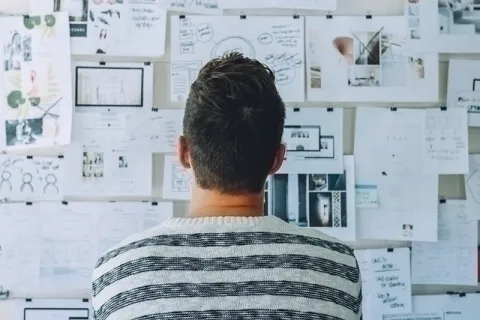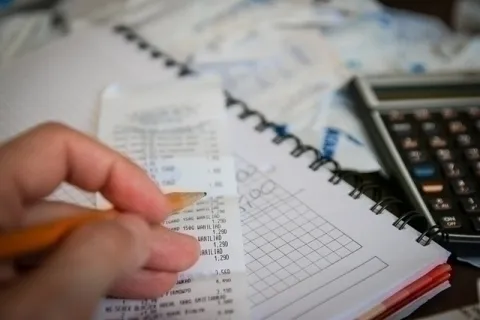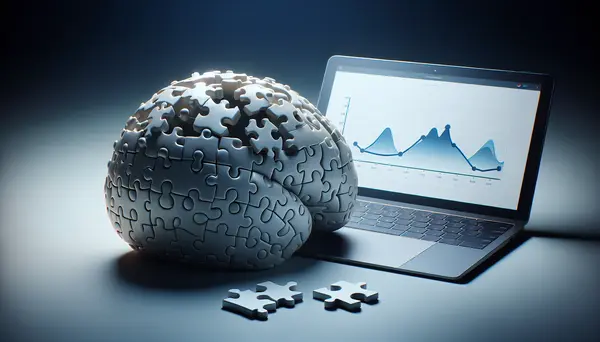- Historical data provides a wealth of information for identifying patterns and trends that can inform future trading strategies.
- Backtesting involves applying trading strategies to historical data to assess their potential profitability and risk before using them in live markets.
- By incorporating lessons learned from backtesting, traders can refine their strategies and improve their decision-making process.
I'm wondering how you all incorporate historical data and backtesting into your trading education. Have you found it to be a helpful tool for improving your trading strategies? Any tips or insights on how to effectively use historical data to make more informed trading decisions?
Oh, historical data and backtesting, now we're talking! As a trader, I've found incorporating historical data into my trading education to be an incredibly helpful tool for improving my trading strategies. It's like taking a trip back in time to analyze the Market patterns and trends that have occurred in the past.
One of the main benefits of historical data is that it allows us to observe how different market conditions have influenced various securities. We can identify patterns, correlations, and even anomalies that may not be apparent in real-time trading. By studying the past, we can gain insights into how certain assets behave under different circumstances, which can guide our decision-making process.
Backtesting is another technique that I find invaluable. It involves running trading strategies on historical data to see how they would have performed in the past. It helps us gauge the profitability and reliability of our strategies before applying them to live trading. It's like a trial run, and it helps eliminate some of the emotional biases that can cloud our judgment when trading with real money.
To effectively use historical data and backtesting, there are a few things I've learned along the way. Firstly, it's important to ensure that the historical data you're using is accurate and reliable. There are plenty of sources available, but not all of them are trustworthy. I recommend using reputable platforms or data providers to minimize any potential errors.
Secondly, it's crucial to have a comprehensive understanding of the data you're analyzing. Don't just blindly rely on numbers and charts; dig deeper into the fundamental factors and macroeconomic events that occurred during the particular time period. This will help you contextualize the data and make more informed trading decisions.
Another tip is to avoid over-optimizing your strategies based solely on historical data. Market dynamics change, and what worked perfectly in the past may not necessarily work in the future. It's essential to regularly review and update your strategies based on real-time market conditions.
Lastly, always be mindful of the limitations of historical data. It's not a crystal ball that predicts the future with 100% accuracy. It can provide us with valuable insights, but it doesn't guarantee success. We should use historical data as a guide and complement it with other techniques such as fundamental analysis and staying abreast of current news and events.
So, how about you? How do you incorporate historical data and backtesting into your trading education? Any tips or insights that you'd like to share? I'm always eager to learn from fellow traders' experiences!
Oh, historical data and backtesting, now we're talking! As a fashion-forward trader, I've found incorporating historical data into my trading education to be an incredibly helpful tool for improving my trading strategies. It's like taking a trip back in time to analyze the fashion trends that have occurred in the past. One of the main benefits of historical fashion data is that it allows us to observe how different style conditions have influenced various garments. We can identify patterns, correlations, and even anomalies that may not be apparent in real-time fashion trading. By studying the past, we can gain insights into how certain clothing items behave under different circumstances, which can guide our decision-making process.
Backtesting is another technique that I find invaluable when it comes to fashion trading. It involves running outfit strategies on historical fashion data to see how they would have performed in the past. It helps us gauge the popularity and relevance of our fashion choices before applying them to live fashion trading. It's like a trial runway show, and it helps eliminate some of the emotional biases that can cloud our judgment when choosing outfits for real-life events.
To effectively use historical fashion data and backtesting, there are a few things I've learned along the way. Firstly, it's important to ensure that the historical data you're using is accurate and reliable. There are plenty of sources available, but not all of them are trustworthy. I recommend using reputable fashion platforms or style data providers to minimize any potential errors.
Secondly, it's crucial to have a comprehensive understanding of the fashion data you're analyzing. Don't just blindly rely on numbers and charts; dig deeper into the cultural factors, societal events, and fashion influencers that were prevalent during the particular time period. This will help you contextualize the data and make more informed fashion decisions.
Another tip is to avoid over-optimizing your fashion choices based solely on historical data. Fashion trends change, and what worked perfectly in the past may not necessarily work in the future. It's essential to regularly review and update your outfit strategies based on real-time fashion conditions and emerging trends.
Lastly, always be mindful of the limitations of historical fashion data. It's not a crystal ball that predicts the future of fashion with 100% accuracy. It can provide us with valuable insights, but it doesn't guarantee success. We should use historical fashion data as a guide and complement it with other techniques such as style analysis and staying abreast of current fashion news and events.
So, fellow fashion-forward traders, how do you incorporate historical fashion data and backtesting into your trading education? Any tips or insights that you'd like to share? I'm always eager to learn from fellow traders' experiences!
I absolutely agree that historical data and backtesting play a crucial role in trading education. By analyzing past market trends and patterns, we can gain valuable insights into how different assets have performed under various conditions. Backtesting allows us to test our trading strategies on historical data, helping us assess their effectiveness and potential profitability. It's like learning from the past to make more informed decisions in the present. In my experience, using historical data and backtesting has significantly improved my trading strategies and decision-making process. How about you? Have you found historical data and backtesting to be beneficial in your trading education? Any specific techniques or tools you use to incorporate them effectively?
Definitely, historical data and backtesting are like the "Ghost of Christmas Past" for traders - they can show you the errors of your ways! But remember, don't let it haunt you, just let it guide you! Anyone else feel the same, or is it just me having too much Christmas spirit already?
Absolutely, a good chuckle on the Christmas spirit! Balancing respect for the past and adapting to the markets\' present is key. Keep that spirit in check and the insights flowing!
- Can you explain the concept of slippage in trading? 1
- How does seasonality impact market analysis? 4
- What is a securities' yield and how can it be analyzed? 5
- How do I use price charts for market analysis? 3
- Can anyone explain the principle of contrarian investing? 4
- Can you explain the concept of scalping in trading? 3
- How can I calculate the risk-reward ratio in my trades? 2
- Can you explain the concept of supply and demand analysis? 12
- How do you cope with a series of unsuccessful trades? 10
- How can I manage risk in my trading? 3
- How do you navigate the regulations surrounding short selling? 318
- What are Forex trading and its basics? 290
- How do you manage stress during volatile market conditions? 216
- How does a stop-loss order work in trading? 205
- What tax implications should I consider when trading? 199
- What are the best platforms for online trading? 191
- What's the difference between day trading and long-term investing? 188
- What is swing trading and how is it different from day trading? 185
- How do you avoid letting past trading successes or failures impact your future decisions? 180
- Can you explain the concept of short selling in trading? 178

We have compared the best crypto exchanges for you. Just take a look at our free crypto exchange provider comparison.

We have compared the leading crypto tax tool providers for you. Check out our free crypto tax tool provider comparison.
Blog Posts | Current

Mastering Your Mindset: The Key to Successful Trading Psychology
As a trader, your success in the markets depends not only on your technical skills and market knowledge, but also...

Don't Fall for the Hype: The Risks of Using Trading Bots
As a beginner trader, you may have come across the idea of using trading bots to automate your trading and...

From Chaos to Consistency: Why a Trading Setup is Key to Success
Trading is an exciting and rewarding way to make money, but it can also be overwhelming for beginners. One of...

Different Cost Average Trading Strategies
Cost Average Trading is one of the most popular trading strategies used by investors to minimize their risk and maximize...

Breaking Down the Buzzword: What is a Trading Bloc?
Are you familiar with the term "trading bloc"? It may sound complicated, but it's actually a concept that can have...

The 5 most common mistakes made by crypto traders
The 5 most common mistakes made by crypto traders Crypto trading is becoming increasingly popular, but there is great potential to...

Maximizing Returns: The Importance of Rebalancing Your Portfolio
Rebalancing your portfolio is an important part of any long-term investment strategy. It involves periodically adjusting your portfolio's asset allocation...

The Trader's Dilemma: Dealing with Losses in Trading
As a trader, losses are an inevitable part of the game. Even the most successful traders will experience losing trades...

Automating Your Trades: The Power of Trading Algorithms
As an avid trader, you've probably heard the buzz around trading algorithms. But what are they, and how can they...

Protect Your Capital with Effective Risk Management in Trading
Risk Management As a beginner trader, you're likely eager to dive into the markets and start making some profits. However, before...
